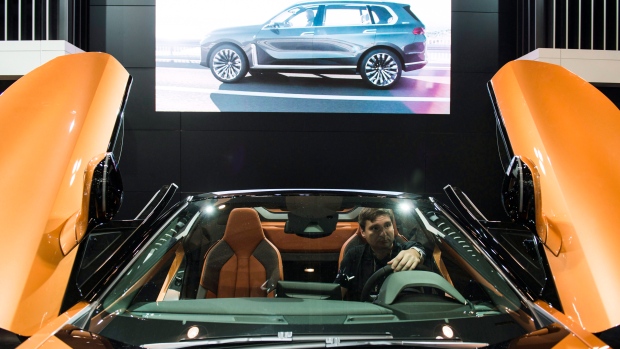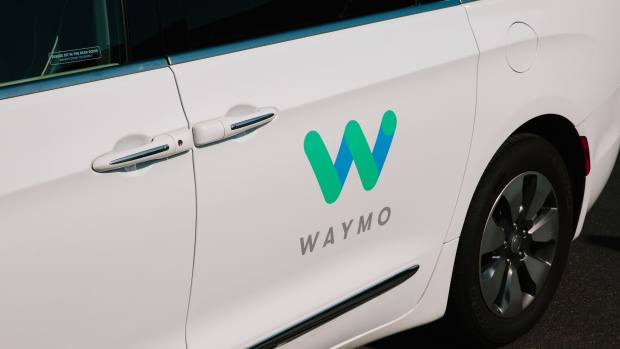Feb 15, 2019
Waiting for the payoff: Auto, tech giants bet big on self-driving cars

At this year’s Canadian International AutoShow in Toronto, muscle cars and collectibles will share the spotlight with new vehicles that are bridging the road towards self-driving cars.
Automakers such as BMW AG and Toyota Motor Corp. will showcase a range of autonomous features, from parking assistance to pedestrian detection, as traditional players race against Silicon Valley to control the burgeoning self-driving vehicle market.
Some of that race is playing out right here in Canada. Prime Minister Justin Trudeau announced $40 million in federal money on Friday for one-time smartphone leader BlackBerry Ltd. to help the company develop autonomous vehicles technologies.
And not far from the auto show, you’ll find Uber Technologies Inc.’s Canadian self-driving research hub.
Uber is spending millions of dollars in Toronto on both research and artificial intelligence talent. The company hired Raquel Urtasun, a fast-talking professor from the University of Toronto, who is helping to build out the hub’s engineering team.
“We want self-driving cars to be available for everybody, not just for the rich,” Urtasun, chief scientist at Uber's Advanced Technologies Group (ATG), told BNN Bloomberg in a television interview.
“I'm given full independence to have all the resources necessary to push this technology. It’s important because if you think of the long-term horizon of where Uber wants to be, self-driving is a must on the agenda. So that's why we need to invest. And yes, it's expensive – but in the long run, it will payoff."
Urtasun grew up in Pamplona, Spain, which is famous for the running of the bulls. She spent more than a dozen years working on machine learning at leading institutions, including the Massachusetts Institute of Technology and University of California Berkeley. Uber was keenly interested in her work on software that enables self-driving cars to recognize objects. That know-how has been invaluable to the ride-hailing company, as it resumes autonomous testing after one of its driverless vehicles struck and killed a cyclist in Arizona last year.
Alphabet Inc. is also plowing massive resources into its Waymo self-driving unit. Analysts at Morgan Stanley estimate Waymo may already be worth as much as US$175 billion. That’s about three times Tesla’s current market capitalization.
Elon Musk was asked about Waymo’s valuation on Tesla’s recent earnings call and cited what he sees as his own company’s advantage in the self-driving wars: An army of Tesla cars already on the road and constantly gathering data.
“We have, at this point, somewhere on the order of 300,000 vehicles on the road,” Musk told analysts. "So, effectively, we have a massive, massive training fleet.”
Meanwhile, Amazon joined the fray this month, investing in a self-driving startup called Aurora Innovation as part of a US$530 million financing round.
“[Amazon] is a technology giant,” Aurora CEO Chris Urmson said in a recent interview with Bloomberg Television. “We’re excited to have them as a partner.”
Urmson, who was born in Richmond, B.C., has come a long way from his days studying engineering at the University of Manitoba. A high-profile stint helping to spearhead Google’s self-driving ambitions boosted his profile and appeal to investors.
Amazon’s investment was part of a financing round which values two-year old Aurora at more than US$2.5 billion. “We’re building a driver. And the idea is you should be able to get in your car and sit back, read a book or have a nap and get from A to B,” said Urmson, who is working with automakers such as Volkswagen AG and Hyundai Motor Co. and testing vehicles on roads in Pennsylvania and California.

A leap of faith
For traditional automakers, competing with the likes of Amazon, Tesla, Google and Uber has forced some tough decisions.
General Motors Co., for example, has been cutting jobs and announcing the closure of plants including that in Oshawa, Ont. As it sheds costs, it’s doubling down on its self-driving unit, Cruise. GM acquired the San Francisco-based startup in 2016 and plans to invest another US$1 billion in Cruise this year. GM CEO Mary Barra has also set a goal of launching a robo-taxi service by the end of 2019.
But investing heavily in self-driving is, on some levels, a leap of faith for companies that are more cash-strapped than tech giants. Not only are big investments required, but the companies funding that self-driving research are frequently encouraged by the AI community to share their findings publicly.
"Self-driving cars...everybody wants to get a piece of it. This is a US$300 billion market. But our philosophy is that you should showcase the technology you have so the public can understand what you're building,” Uber’s Urtasun told BNN Bloomberg.
Self-driving hopefuls must also dedicate significant resources towards an ongoing dialogue with all levels of government.
In Ontario, the province has allowed select driverless cars on roads, as part of a pilot program. Companies participating in the program include BlackBerry, University of Waterloo, Uber, and auto parts giant Magna International Inc., which has also teamed up with ride-hailing company Lyft Inc. as part of a self-driving partnership.
But with uncertainty surrounding when self-driving cars will be a reality on the roads, it’s no surprise startups like Aurora are loading up their cash coffers with partners like Amazon as they wait for their investment bets to pay off.
“It’s bridging between two industries — between the technology industry and the automotive industry. And anytime you have that kind of complexity, it take a while to figure it out,” Aurora’s Urmson told Bloomberg Television.









